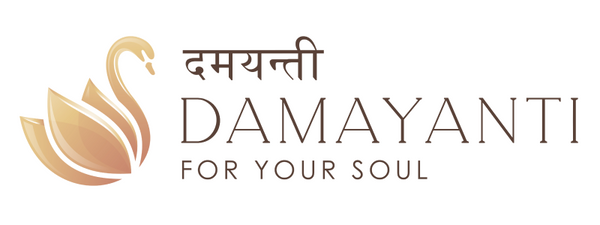[The following is an edited version containing the key ideas of Chapter 7 from my book Conscious Confidence: Use the Wisdom of Sanskrit to Find Clarity and Success ]
“A man who conquers himself is greater than one who conquers a thousand men in battle.”
– Buddha
In this chapter we are going to look at the move from Victim to Victor. We will look at how choice is a key factor, and how we are always free to choose. To emerge from the “culture of victimhood” we choose to be a victor instead. This is a solutions-based approach and a powerful proof that a change of attitude changes our lives.
For some with feelings of being at the mercy of external events and the people in our lives this may seem impossible. It isn’t. For those who have been the victims of abuse, neglect or crime this may seem especially hard to face, but we can look to the timeless wisdom of Sanskrit to clarify the situation and open a pathway to real freedom and victory.
![]()
What Does Sanskrit Teach Us about the Meaning of Victim and Victor?
The Sanskrit for these two concepts is direct and uncompromising. A person locked into an attitude of victimhood is bound and tethered. They have effectively given their power away and have rendered themselves weak and impotent.
A victor, on the other hand, is a conqueror, is one who is free, in control and can choose any direction for their life.
Let’s examine two Sanskrit words for “Victim”:
Bali (बलि) means a sacrificial offering. Something that is offered in sacrifice to a higher power.
A sacrificial victim is a tribute or offering that is made in a ritual sacrifice. It is offered up to a higher power to benefit the one who makes the sacrifice. The word bali—victim—is derived from a root that carries the meaning of “suffering.”
So, the first level of meaning for victimhood is something—either animate or inanimate—suffering and enduring through the act of being offered in sacrifice. The sacrifice benefits others, not the victim.
Yajña – pashu (यज्ञपशु) means a sacrificial animal.
Yajña (यज्ञ) means a sacrifice, and pashu (पशु) is a tethered animal; figuratively pashu means a person ignorant of sacred things.
A yajña – pashu is a tethered sacrificial animal, not an inanimate object, but an animal that is tied up waiting to be offered in sacrifice.
![]()
How does someone get into a state of victimhood? To be in a state of victimhood requires us to render ourselves powerless by surrendering our personal authority and creativity. The responsibility for our happiness and freedom of thought and action appears to be in the hands of others. For example, our power to change a situation in a fruitful and healthful way is sapped when we are angry, frustrated and feel powerless in the face of others who are dominant and pushy.
We have to be careful here. Most of us have experienced moments in our lives when people or events have been genuinely harsh or worse. Some have suffered abuse: physical or psychological.
What we are addressing is the difference between events, and the mindset that those events trigger. It is the mindset that perpetuates the state of victimhood, sometimes long after the events happened. What we are trying to do in this chapter, is lay out a path that, if followed, leads to mental and emotional freedom, a releasing of the burden and true healing.
To do this we need first to be honest and straight about what makes up the victim mentality, what are its essential features. Sanskrit speaks of a victim as being essentially powerless.
The characteristics of this state of victimhood are blaming others or circumstances, making excuses for inaction, and denial that we can take responsibility for our mindset and attitude.
![]()
Let’s move on and see what Sanskrit has to teach of the alternative perspective of being a Victor.
What Does Sanskrit Teach Us about the Meaning of Victor?
The Sanskrit meaning of “victor” is simple: you have won! There’s no state of partial victory, if you win then you’ve won.
Jetā (जेता): A conqueror; victorious, triumphant.
The word for “victor” comes from the root “ji (जि).” This root means: to win, conquer, vanquish, excel, surpass, overcome, to be victorious.
Being a victor according to Pāṇini, the ancient Sanskrit grammarian, involves both excelling and overcoming.
We excel in some field or undertaking, and we overcome any challenges or obstacles.
Internally, “excelling” means we connect with that in ourselves which is excellent: our goodness, our intelligence, our skills and talents. Internally, “conquering” means we overcome negative habits, distractions and obsessions. As victors, this leads to success and prosperity, and we can also be better friends, parents, colleagues, workers or bosses.
To be a conqueror and victor in life, is to take ownership of our own experience, to be accountable for our own decisions and to take responsibility for the outcomes.

Moving from Victim to Victor
Moving from Victim to Victor is the key change. To make this move we change from blame, excuses and denial (B.E.D.) and enter a world of ownership, accountability and responsibility (O.A.R.). The O.A.R. is a symbol of adopting a proactive attitude. You take up your oar, and row where you want to go. Rather than being impelled by the stream of habits and ideas that would keep us bound, keep us inactive in B.E.D.
When we’re stuck in B.E.D., it seems like we have no choice; we appear fixed in a state of victimhood. The good news is we can choose to get out of this state. We can choose to take up our O.A.R. and row.
This is not about blaming the victim. The point of learning about victim and victor is so we have new knowledge and greater awareness of what is actually happening in both states. Only then can we make a change and move from one to the other.
A culture of victimhood is prevalent these days. This reinforces a fixed, bound and powerless state through perpetual blame and making excuses, followed by denial that we have any part to play in resolving the situation. Expecting someone else to change, while we do nothing about our own attitude and state, is a futile exercise.
Of course, sometimes injustices occur, and some response is necessary to restore harmony and balance. This restitution is not possible from the powerless state of victimhood. You must be in a state of empowerment through choosing O.A.R. for permanent restitution to occur.
Choice Is the Key
Choice, by definition, means there is another option. Choosing the state of victimhood is choosing a state where we appear to be bound, trapped and to have no choices. It means we see ourselves as having no power at all. Choosing to be a victor means we are taking responsibility, using our talents, skills and strengths to meet challenges and overcome them.
Being a victor means we can achieve our dreams.
Why would we choose victimhood over being a victor? What’s the payoff?
It’s easier! It takes no effort to surrender our power and give up responsibility. It takes strength, effort and willpower to change, be accountable and take ownership. In B.E.D. we passively wait to be rescued. To get out of B.E.D., by contrast, we summon our own power and strength and call on any help that is available. Some of the ways of taking up our O.A.R. are: prayer, affirmations, journaling, vision boards, goal setting and finding a community of like-minded and motivated people.
The point of choice is where we shall look next. We will discover that there are always other options. We can always rise above the bound and powerless state of victimhood to be a victor; a winner.
Let’s awaken and choose to get out of B.E.D.!
What Does Sanskrit Teach Us about Choice?
Sanskrit tells us that choosing, selecting one thing over another, is a form of honouring.
Varaṇa (वरण), means the act of choosing, selecting, honouring.
Choice, by definition, implies there are alternate possibilities. Whenever and wherever we engage in the act of choosing, we are selecting something that we prefer. Ideally this preference is for something that is inherently good.
Sanskrit also includes with the act of choosing and selecting, the element of “honouring.” We honour that which we value, respect and love. So, when we make important choices, we honour the best and highest.
A key element in choosing wisely is to be conscious and awake when we make our choices. All too often, however, we are asleep and unaware of our so-called “choices,” which are not choices at all, they are habitual, unconscious reactions. We don’t in fact consider or honour that which is best or most valued. We can see how inefficient this can be when we are choosing material things like a house or a car. If we are asleep to our choices when selecting our thoughts and feelings, then these can become unconsidered knee-jerk reactions. Hence the hasty word and the hurtful phrase that slips out before we know it. Also, in that form of sleep we are unable to exercise the choice to stop repetitive negative thoughts that churn in our minds. This lack of real choice creates the life that we live, and affects us as an individual, and also everyone with whom we journey through life, our family, friends and community.
To move from victim to victor we have first to raise our awareness and create a space where we can make real, conscious choices. In that space, it is completely natural to choose a better way, a way of transformation, possibilities and fulfillment. It is only through increased self-awareness that our choices will honour the highest and best in everything.

